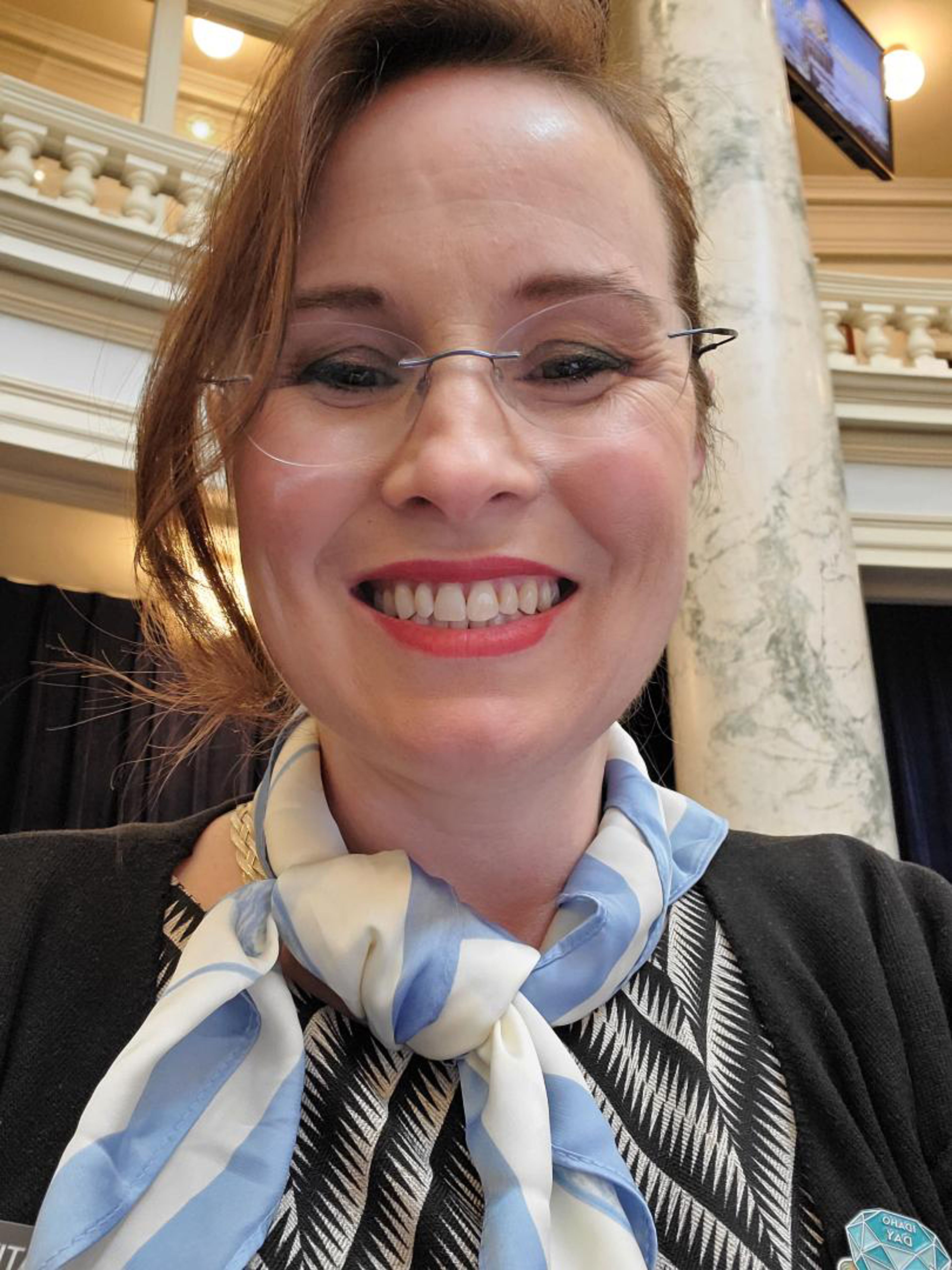OPINION: Cheers and Jeers: Idaho Legislature is tuning you out
Cheers and Jeers: The Tribune’s Opinion
CHEERS ... to state Rep. Lori McCann, R-Lewiston.
Although McCann was on the losing side Wednesday, she made a solid point about the House Health and Welfare Committee’s drive to overturn expanded Medicaid coverage to some 90,000 Idahoans.
“We represent the people, and if you look at your districts, every one of our districts has substantial problems that will be much more evident if we move forward with this,” McCann said.
It fell on deaf ears.
The slight majority, spurred on by Rep. Jordan Redman, R-Coeur d’Alene, pursued a plan that will terminate Medicaid expansion next year unless the Trump administration agrees to a series of extreme waivers.
In so doing, these lawmakers ignored testimony that ran five-to-one against repeal.
They rejected the nearly 61% of Idaho voters, who in 2018 passed Medicaid expansion over the protests of Republican lawmakers.
They misrepresent Medicaid expansion as fiscally unsustainable.
As the Idaho Center for Fiscal Policy just pointed out, spending on Medicaid grew less than the rate of inflation and less than the overall growth in Idaho’s budget.
During the past five years, Medicaid expanded by 19.6%, compared to:
-- Department of Revenue and Taxation — 20.3%.
-- Department of Correction — 33%.
-- State spending — 39.5%.
-- Public education — 51.2%.
And these lawmakers would rather not talk about how they’ve got the economics wrong. Because the federal government pays 90% of Medicaid expansion’s costs, the program actually saves Idaho money. Eliminate Medicaid expansion, and the state would end up spending a net $5 million more on care for state prisoners, the medically indigent and mental health.
On top of that, University of Idaho economics professor Steven Peterson’s updated study demonstrates the folly of throwing away:
-- $1.5 billion in “net additional gross economic activity.”
-- $897.6 million in worker earnings and taxes.
-- $47 million in additional tax revenue.
-- 9,362 jobs.
These lawmakers may not care about threatening the well-being of 90,000 of their fellow Idahoans. But why are they so willing to undermine small Idaho hospitals with tight operating margins, take a bite out of Idaho’s economy and drive up the costs of health care for those who can still obtain private insurance?
They’re defying you — and they’re proud of it.
JEERS .... to House Speaker Mike Moyle, R-Star.
For a half-century, Idaho has provided its ambitious young people with a pathway toward getting a medical education. Dubbed WWAMI for the states involved in this partnership — Washington, Wyoming, Alaska, Montana and Idaho — it supports training both in Idaho and at the University of Washington School of Medicine. For a yearly investment of $7.5 million, the state subsidizes the medical education of 160 Idaho students at a time.
“I was a kind of a kid without a medical school coming from a state like Idaho that didn’t have one,” Ted Epperly told the Lewiston Tribune’s Rachel Sun as WWAMI marked its 50th anniversary in 2022. “And friends of mine from other states who (did have a medical school) were facing a lot easier time pursuing their dreams.”
In return, the Gem State — which is chronically short of physicians — has a pipeline of medical talent returning home.
Joined by Rep. Dustin Manwaring, R-Pocatello, Moyle is fixing something that isn’t broken.
Three years ago, he passed a clawback provision — requiring Idaho grads to return home, practice for at least four years or reimburse the state for its investment in their education.
Now he wants to sever Idaho’s relationship with WWAMI entirely. His bill is pending before the House Education Committee.
As Idaho Education News’ Kevin Richert reports, part of the dispute involves maternal health. The University of Washington provides optional courses in abortion — which an emergency room doctor would need to know if confronted with a woman suffering a crisis pregnancy.
But Moyle doesn’t have a Plan B. His bill calls on the State Board of Education to work with “at least two medical education programs within Idaho or adjacent states located wholly within the Mountain Time Zone.”
Maybe that’s the private Idaho College of Osteopathic Medicine in Meridian.
Or it could be the University of Utah, which already handles 40 Idaho medical students.
All of which had Rep. Jack Nelsen, R-Jerome, concerned that the state could wind up holding the bag with fewer medical school seats.
“I would hate to get caught in the middle,” he said.
CHEERS ... to Jerrick Edwardsen, of Lewiston.
This Lewiston High School student — and co-editor-in-chief of The Bengal’s Purr — is Lewiston’s face of resistance to the Legislature’s assault on Idaho’s libraries.
He’s among the plaintiffs suing to overturn last year’s bill threatening sanctions if libraries don’t move materials deemed “harmful to minors.” In doing the bidding of the Idaho Family Policy Center, the Legislature violated the First and 14th amendments to the U.S. Constitution.
“The act thus puts educators and librarians in the untenable position of having to guess whether any member of the public might file an objection to a book whose message they disagree with by simply claiming the book falls within (House Bill) 710’s vague and overbroad definition of materials ‘harmful to minors,’ ” the lawsuit alleges.
Joining Edwardsen in that effort are national book publishers, authors, the Donnelly Public Library, parents and other students.
Appearing Saturday with MSNBC host Ali Velshi, Edwardsen argued the Idaho Legislature is not protecting him. Far from it. It treats a 17-year-old no differently than an elementary school student.
“The most important thing is to speak out,” Edwardsen said. “We are the boots on the ground here in Idaho.”
Good for him. — M.T.











